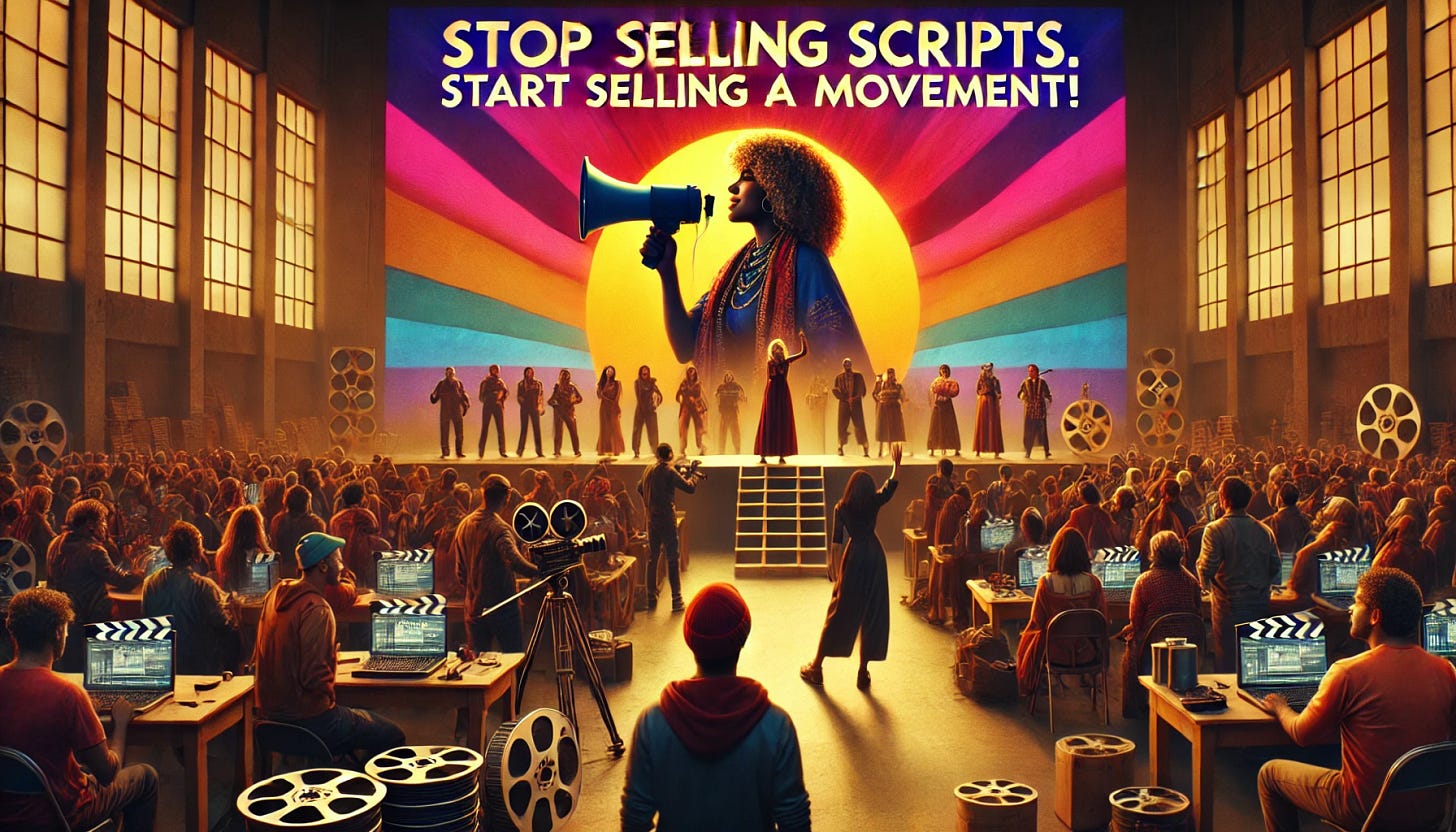Stop Selling Scripts. Start Selling a Movement: Why the films that sell big are built on something deeper than plot
Studios don’t buy projects—they invest in purpose. If you want people to champion your work, you need to give them something to believe in.
Alright, lean in for a second. I want to tell you something most people won’t: no one cares about your big idea. Not at first. Not until they believe in it.
Now, I get it—you’ve got this killer concept, this brilliant thing you’re dying to create. You’ve outlined the story, perfected the structure, polished the deck. You know exactly how you’re going to make it, what it’s going to look like, who you’re going to cast. But if you’re leading with how and what instead of why—you’re dead in the water.
Because here’s the thing: people don’t buy concepts. They buy belief.
Studios Don’t Buy Movies, They Buy Meaning
Think about your favorite film. The one that changed you, stuck with you, made you feel something deep in your bones. You didn’t love it because of its three-act structure or because the lighting in Act Two was immaculate. You loved it because it made you believe something.
Every great film, every unforgettable brand, every movement that’s ever caught fire—it didn’t start with what they were doing. It started with why it mattered.
Star Wars wasn’t just about space battles. It was about the fight between hope and fear.
Rocky wasn’t just about boxing. It was about the underdog proving he’s more than his circumstances.
Mad Max: Fury Road wasn’t just about car chases. It was about breaking free from oppression and finding redemption in the wasteland.
Those aren’t concepts, they’re beliefs.
And people don’t just buy into beliefs—they fight for them. They wear them like armor. They defend them. They spread them.
Your Filmmaker Brand Is Not Your Work, It’s What You Stand For.
Most people pitch their work like this:
"It’s a dark psychological thriller about a detective who uncovers a conspiracy that—"
Nope. Wrong door. Try again.
Instead, try this:
"I believe that we’re all one moment away from discovering a truth that could destroy us—and that’s what this film explores."
See the difference? One is a plot. The other is a belief.
People might like your concept. But if they believe in your vision, they’ll follow you anywhere.
That’s why the most successful filmmakers, entrepreneurs, and creatives aren’t just selling projects—they’re selling the why.
Make Them Feel Something, Or They’ll Feel Nothing
Humans don’t make buying decisions based on logic. We tell ourselves we do, but we don’t.
We buy from emotion and justify it later. It’s why people drive cars they can’t afford, wear brands that make them feel powerful, and follow certain filmmakers like disciples.
And if you’re not making your audience and buyers feel something, you’re making them feel nothing—and nothing is the fastest way to irrelevance.
So here’s your job:
Figure out what you believe. Not what you’re making—why you’re making it.
Make sure your audience knows. When your conviction is undeniable, even the most cynical buyer won’t just see a project; they’ll see amission they need to be part of.
Lead with it. Every time. Your website, your pitch, your marketing—it should all scream, “This is what I stand for.”
Your Move
Look, you can spend your life perfecting your craft, but if you don’t learn how to make people believe in what you’re doing, you’ll always be fighting an uphill battle.
So, what do you believe? And better yet—how are you going to make us feel it?
Drop it in the comments. I wanna hear it. Because if you can’t say it, no one else will.






Eloquently written.
I agree with much of this article, especially emphasising 'Why' over 'What'. However, I think the reality for many first-time writers is more complicated. Belief is a powerful motivator for audiences, but the industry is still deeply entrenched in its own biases. Even with a great 'Why', many new writers face an uphill battle, where nepotism and established relationships often dictate who gets the chance to make their vision a reality. After having three scripts optioned but never fully produced, I can confirm that the business side often beats the creative. The unknowns struggle to break through, no matter how compelling their ideas. While belief is key, the establishment’s reluctance to take risks on newcomers remains a significant hurdle.